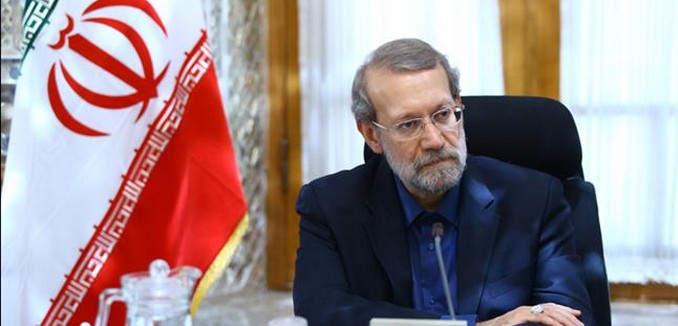The speaker of Iran’s parliament said that his nation must confront the United States and prepare “a plan for the launch of a nuclear plant for enrichment,” Iranian media reported on Wednesday.
Speaker Ali Larijani said that his parliament “is warning the US administration and its House of Representatives and Senate that injurious measures against the nuclear agreement have reached such a point that there is no way left for Iran but to counteract. It is necessary that the Atomic Energy Organization of Iran, as per the law, prepares a plan for the launch of a nuclear plant for enrichment in grades needed in the country and keeps [the parliament] posted.”
Iran is limited to 5,060 centrifuges enriching uranium at the Natanz facility for the duration of the nuclear deal.
Larijani also blasted United Nations Secretary-General Ban Ki-Moon, saying that Ban’s recent criticism of Iran’s actions would be his “free fall.” Ban issued a report earlier this month that called Iran’s continued ballistic missile tests “not consistent with the constructive spirit demonstrated by the signing” of the nuclear deal. Iran has held nine ballistic missile tests since the deal was signed lat year, despite the fact that the UN Security Council resolution implementing the deal called on Iran “not to undertake any activity related to ballistic missiles designed to be capable of delivering nuclear weapons, including launches using such ballistic missile technology.”
Larijani’s criticism of the United States was likely a reference to Senate efforts to extend the Iran Sanctions Act of 1996, which would allow future presidents to impose sanctions on Iran if it is found to be violating the deal.
Despite Iranian complaints that it has not received enough benefits from the deal, a study last month showed that Iran’s economy was on track to expand by four percent annually for the next five years as a result of sanctions relief. According to Iranian documents, the nation’s military spending is to increase 90 percent in the next year. Terrorism expert Matthew Levitt of the Washington Institute for Near East Policy wrote earlier this month that Iran’s support for terror has increased significantly since the deal was signed.
[Photo: PressTV]




